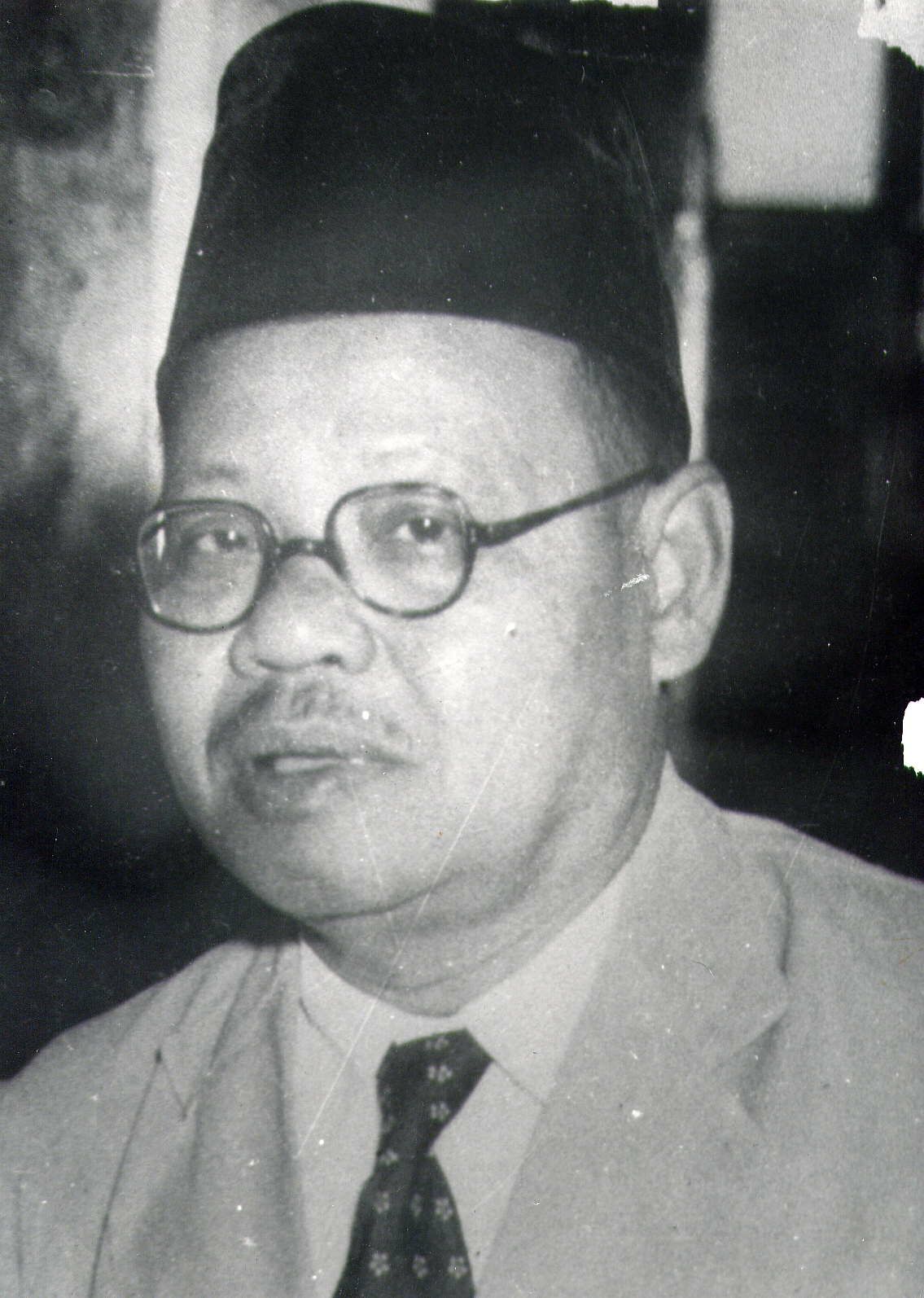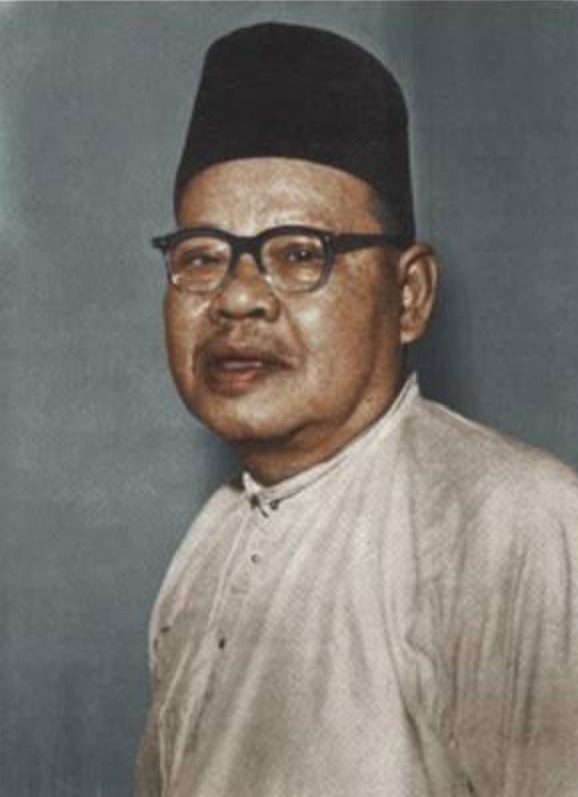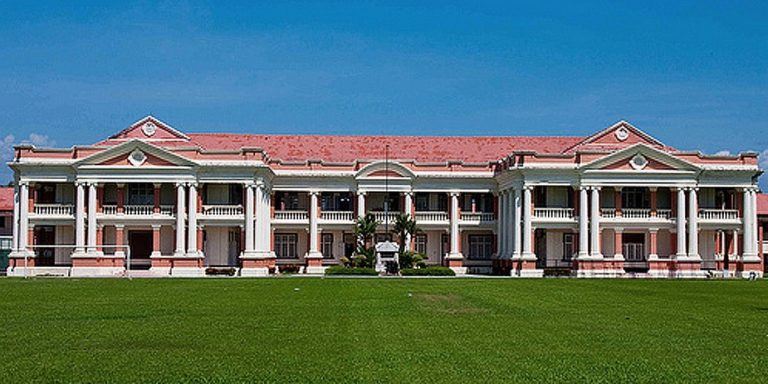Biography بياوݢرافي
Zainal Abidin bin Ahmad


Za'ba
About Zainal Abidin bin Ahmad
Around the year 1940, Tan Sri Dr. Zainal Abidin Bin Ahmad, also known as Za’ba, was a Melayuan scholar and researcher of Minangkabau and Bugis cultural practices. On September 16, he was born in the village of Bukit Kerdas, Jempol, Batu Kikir, Negeri Sembilan. He is the oldest of three siblings to Ahmad Ibrahim (1862–1927), a member of the Bugis Linggi tribe from the Riau Islands, and Intan Awaluddin (1877–1907), a Tanah Datar Minangkabau. Ahmad amassed a fortune working as a farmer and wholesaler on Bahau and Kuala Pilah’s tiny roads.
Za’ba was born from cross-breeding ie his mother, Intan Awaluddin is of Minangkabau descent while his father, who is of Bugis Linggi descent, is a person of wealth, religious knowledge, and one the only resident in the village who knows how to read and write Jawi. His father’s strict and fierce upbringing has become a significant moral and psychological asset for Za’ba himself. As a child, Za’ba became a clever child and was envied for his abilities by the villagers when he recited the verses of the Quran with his melodious voice.
As an adult, Za’ba faced his adulthood with perseverance and vigilance. Za’ba appeared as a critic, propagandist and provocateur who was brave, loud and decisive – not a snitch who knelt at the feet of the colonialists of his nation. Za’ba is also known as a strict person. He has been involved in writing and translating for about 40 years and is a well-known Malay academic. He also works at Sultan Idris College’s Translation Bureau, where he publishes school textbooks and promotes general reading.
Za’ba has personal excellence which is sharpness of thought, seriousness and courage in addition to having the characteristics of a patient, patriotic spirit and strong in every struggle. His love of reading, writing and composing has made him successful in his career
Early career ايرلي كرير

1918
Kuala Kangsar Malay College (English Teacher and Malay Teacher)

1923
Department of Education, Kuala Lumpur (Translator and author of Malay)

1924
Sultan Idris Teachers College, Tanjung Malim

1939
Department of Information, Singapore until 1942

1942
School of Oriental and African Studies, University of London until 1951

1954
University of Malaya, Singapore until 1959
Award اوارد
Throughout his life he has received awards including
1956
Reverend Title at the Third Malay Language and Literature Congress
- 1956
Za’ba was given the title “Pendeta Bahasa Melayu” during the Third Malay Language and Literature Congress. Particularly through his works like the “Pelita Bahasa” series, which played a major role in bringing classical Malay into its contemporary form, this title recognized his significant contributions to the development and modernization of the Malay language.
1959
Honorary and Letters Degree from the University of Malaya
- 1959
In recognition of his scholarly achievements and his impact on Malay linguistics and literature, the University of Malaya awarded Za’ba an honorary degree in Letters. This honor reflected his status as a leading intellectual and his efforts in promoting the Malay language at both national and international levels.
1962
Panglima Mangku Negara who carries the title of Tan Sri
- 1962
Za’ba was conferred the Panglima Mangku Negara, which carries the honorific title “Tan Sri,” by the Malaysian government. This prestigious award recognized his exceptional service to the nation, particularly in the fields of education and language development.
1973
Honorary and Letters Degree from Universiti Kebangsaan Malaysia
- 1973
Universiti Kebangsaan Malaysia honored Za’ba with an honorary degree in Letters, acknowledging his lifelong dedication to the Malay language and his influential role in shaping Malaysia’s linguistic heritage. This award was a testament to his enduring legacy in the academic and cultural landscape of Malaysia.
Career كرير

Za’ba’s journey reflects a persistent struggle against colonial challenges and his unwavering dedication to education, writing, and uplifting the Malay community. Despite facing numerous obstacles, including colonial policies that limited opportunities for Malay intellectuals, Za’ba’s determination and self-reliance allowed him to carve a path of his own.
Za’ba initially aspired to become a writer and doctor. However, colonial restrictions and the lack of scholarships thwarted his efforts to study literature in the United Kingdom. Financial constraints and the desire not to burden his family further compounded his difficulties. Attempts to secure various positions, such as Settlement Officer and Sanitary Inspector, were met with rejections, leaving him to accept a position as a temporary teacher—a role he felt underutilized his potential.
In 1916, Za’ba began his teaching career in Johor Bahru, intertwining his work with his passion for writing. Frustrated by British colonial policies and their impact on Malay society, Za’ba used his pen as a weapon against imperialism, blending his anti-colonial sentiments with Islamic values. His writings criticized the poverty and backwardness of the Malays, aiming to awaken the community’s intellectual and social consciousness.
Za’ba’s teaching journey took him through several institutions:
- English College, Johor Bahru (1916-1918): Began his career as a teacher.
- Maktab Melayu Kuala Kangsar (1918-1923): Passed the teaching specialist examination in 1921.
- Sultan Idris Teacher Training College (1924-1939): Played a pivotal role in training teachers and developing educational materials.
Beyond teaching, Za’ba served as a translator and author, contributing significantly to Malay literature and education. His roles included:
- Translator at the Director of Schools’ Office in Kuala Lumpur.
- Organizing Malay education books at the Singapore Education Department.
- Editor-in-chief and translator for Radio Japan during the Japanese occupation.
- Senior Malay translator and textbook author post-World War II.
Beyond teaching, Za’ba served as a translator and author, contributing significantly to Malay literature and education. His roles included:
- Translator at the Director of Schools’ Office in Kuala Lumpur.
- Organizing Malay education books at the Singapore Education Department.
- Editor-in-chief and translator for Radio Japan during the Japanese occupation.
- Senior Malay translator and textbook author post-World War II.
Za’ba’s life exemplifies resilience and a commitment to intellectual and cultural empowerment. His efforts in education, writing, and translation laid the foundation for modern Malay thought and literature, ensuring his legacy as a pioneer in the intellectual awakening of the Malay community.
Contribution كونتربيوشن
Za’ba Spelling System
Za’ba introduced a new spelling system known as the Za’ba Spelling System in 1933. This system replaced the older spelling system introduced by R.J. Wilkinson in 1914. The Za’ba Spelling System was widely used in schools until it was replaced by the New Spelling System in 1972. Due to its long usage in schools, it was also referred to as the School Spelling System. Za’ba’s system prioritized phonetic representation, ensuring that words were spelled as they were pronounced. This made it easier for learners and speakers of the Malay language to read and write. The system simplified many of the complex and inconsistent rules of the previous spelling systems, making it more accessible for everyday use. The Za’ba spelling system was quickly adopted in schools across malaya where it became the standard for teaching the Malay language. It was used in official documents, books and newspapers, contributing signifacntly to the literacy and and educational development of Malay speakers. It reinforced Za’ba’s reputation as a key figure in the development of the Malay language, earning him the title “Bapa Bahasa Melayu Moden” (Father of Modern Malay Language).
Daftar Ejaan Jawi
In 1929, Za’ba introduced a method of Jawi spelling that became the foundation for the standardization of the script. In 1931, Za’ba published the book “Rahsia Ejaan Jawi” (The Secrets of Jawi Spelling), which outlined the rules and methods for writing in Jawi. His efforts in compiling Jawi vocabulary began as early as 1918, and in 1924, he established a society with the goal of standardizing Jawi spelling and advancing Malay literature. The pinnacle of these efforts was the completion of the Daftar Ejaan Melayu (Jawi-Rumi) in 1938, where he provided Jawi and Rumi spellings for each word based on the Jawi alphabetical order. Although Za’ba aspired to create a comprehensive dictionary in Jawi script, he ultimately proposed a spelling list instead. These contributions highlight Za’ba’s significant role in developing and enriching the Malay language.
Knowledge & Grammar
Za’ba distinguished between the knowledge of grammar and language skills, emphasizing that language usage is a skill that requires practice, although grammar remains important in language learning. In his book “Pelita Bahasa Melayu” (1941), which consists of three volumes, Za’ba outlined the comprehensive and complete basics of Malay grammar, providing guidance on sentence structure and the functions of words. He also highlighted the importance of grammar in learning foreign languages to avoid the influence of one’s native language grammar. Za’ba’s grammatical analysis covered morphology and syntax, although he did not use these terms, and was primarily based on the traditional approach that emphasized meaning. Za’ba’s significant contributions to grammar have led to substantial changes in Malay linguistics, with a focus on encouraging improvements by subsequent generations.